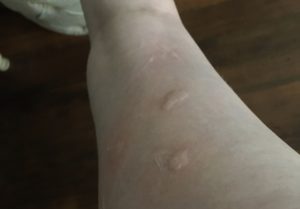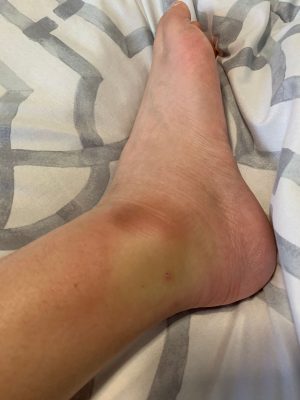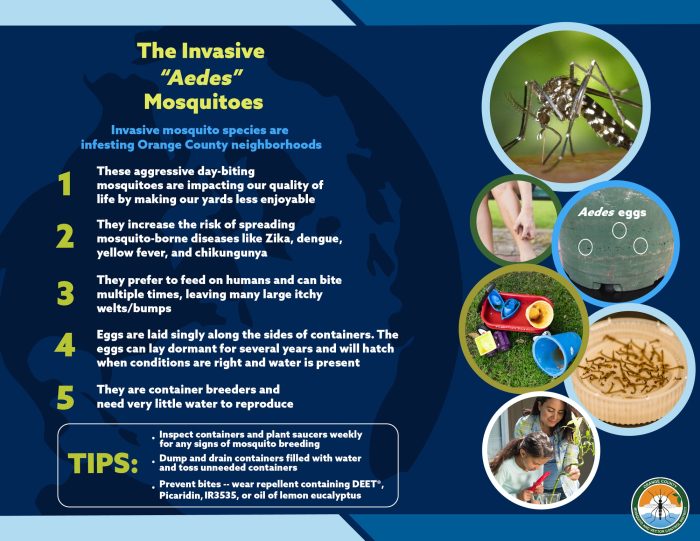
Tess Connerty was studying in Leatherby Libraries when she found “Dracula in mosquito form.” Not that she was psychic. But soon after, the freshman business administration major looked down and noticed an eerie coincidence: her legs had become “a mosquito blood bank” for Dracula-sized bites.
The Aedes mosquito has descended upon campus. Consider them the new pests in town.

They will bite without borders, under clothes, indoors and outdoors, relentlessly hovering around all those sitting in class or just hanging out around campus.
According to Orange County Vector Control, this newer species is especially dangerous due to its size and thirst for specifically human blood. The Aedes also have the potential to carry diseases like Zika, dengue, and yellow fever, among others.
Students have been bitten anywhere from the Memorial Lawn to deep into the basement of Leatherby Libraries.
“This past year, I’ve been bitten at least 20 times and I definitely have the marks to show it,” said Roselyn Trinh, a junior biological sciences major.
“Inside and outside of Chapman’s buildings,” she finds bites regardless of the generous amount of repellent she applies.

Still, OC Vector Control says you have a shot at preventing bites using “repellent containing DEET, Picaridin, IR3535, or oil of lemon eucalyptus.”
Some students have taken pest control into their own hands.
One of these brave souls is Makaila Teagle, a freshman dance major. “One time there was a mosquito flying towards me so I smacked it with my finger and it exploded,” said Teagle.
The cost? A tiny bit of mosquito blood.
Freshman vocal performance major, Grace Juell, has made a sport of it. After encountering a gang of five bloodsuckers at the entrance to Bertea Hall, she got the drop on three. However, given how small they are, this manual population control is a losing battle.
While some students man the front lines, others have extreme allergies to the bites.
Kelly Uyemura, junior creative writing major, sat down for five minutes and found upwards of 10 unique bites. After a day, the welts were so bad that she went to urgent care only for them to give her a shot and some steroid cream.

Nicole Tchounga is extremely allergic to the bites, but can’t get her own allergy shots for them. Tchounga, a senior screen acting major, has such a fear of being bitten that she resolves to stay covered up no matter the heat.
Kristin Kumagawa, a senior communications major, consulted her doctor because the welts were restricting her movement. The most she could do was treat the symptom and ease the pain.
According to the Centers for Disease Control and Prevention, you can only treat the itch and swelling when bitten. Ice packs, a solution of baking soda and water, and over-the-counter anti-itch or antihistamine creams are all recommended treatments.
What’s worse: it seems these pests are not going away any time soon.
According to OC Vector Control, the Aedes’ eggs can lay dormant for multiple years and are activated with as little as a bottle cap of standing water. The most effective defense is to remove any lingering standing water.
While many students interviewed said they want these mosquitos gone, undeclared freshman, Eli Furie has learned to “coexist with them.”
They’ll be around for a while, so according to Furie, it’s hard to blame them.
“They’re just hungry, that’s all,” he said.
Still, while the Aedes most aggressively bite during warmer parts of the day, hopefully, cooler weather will help keep the growing population docile and dormant.


Blake Huntley is a junior studying theatre technology and visual journalism. He also works as a freelance lighting designer all around Orange County.
Blake Huntley is a junior studying theatre technology and visual journalism. He also works as a freelance lighting designer all around Orange County.
